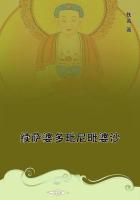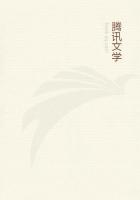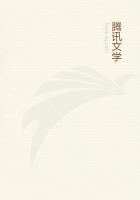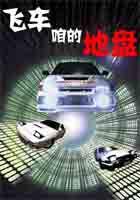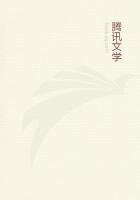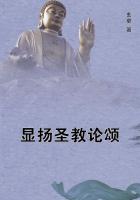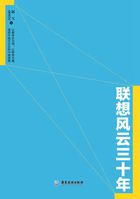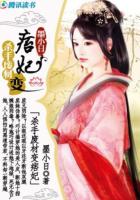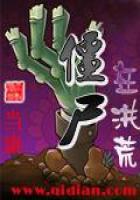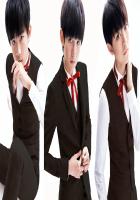Whoever owes the miracles that he works to his own genius surpasses, in my opinion, the man who owes his to chance. He who has discovered the art of adorning the most beautiful of kingdoms [of nature], and of giving it perfections that it did not have, should be ranked above an idle creator of frivolous systems, or a painstaking author of sterile discoveries. Amman's discoveries are certainly of a much greater value; he has freed men from the instinct to which they seemed to be condemned, and has given them ideas, intelligence, or in a word, a soul which they would never have had. What greater power than this!
Let us not limit the resources of nature; they are infinite, especially when reinforced by great art.
Could not the device which opens the Eustachian canal of the deaf, open that of apes? Might not a happy desire to imitate the master's pronunciation, liberate the organs of speech in animals that imitate so many other signs with such skill and intelligence?
Not only do I defy any one to name any really conclusive experiment which proves my view impossible and absurd; but such is the likeness of the structure and functions of the ape to ours that I have very little doubt that if this animal were properly trained he might at last be taught to pronounce, and consequently to know, a language. Then he would no longer be a wild man, nor a defective man, but he would be a perfect man, a little gentleman, with as much matter or muscle as we have, for thinking and profiting by his education.
The transition from animals to man is not violent, as true philosophers will admit. What was man before the invention of words and the knowledge of language? An animal of his own species with much less instinct than the others. In those days, he did not consider himself king over the other animals, nor was he distinguished from the ape, and from the rest, except as the ape itself differs from the other animals, i.e., by a more intelligent face. Reduced to the bare intuitive knowledge of the Leibnizians he saw only shapes and colors, without being able to distinguish between them:
the same, old as young, child at all ages, he lisped out his sensations and his needs, as a god that is hungry or tired of sleeping, asks for something to eat, or for a walk.
Words, languages, laws, sciences, and the fine arts have come, and by them finally the rough diamond of our mind has been polished. Man has been trained in the same way as animals. He has become an author, as they have become beasts of burden.
A geometrician has learned to perform the most difficult demonstrations and calculations, as a monkey has learned to take his little hat off and on, and to mount his tame dog. All has been accomplished through signs, every species has learned what it could understand, and in this way men have acquired symbolic knowledge, still so called by our German philosophers.
Nothing, as any one can see, is so simple as the mechanism of our education.
Everything may be reduced to sounds or words that pass from the mouth of one through the ears of another into his brain. At the same moment, he perceives through his eyes the shape of the bodies of which these words are the arbitrary signs.
But who was the first to speak? Who was the first teacher of the human race? Who invented the means of utilizing the plasticity of our organism? I cannot answer: the names of these first splendid geniuses have been lost in the night of time. But art is the child of nature, so nature must have long preceded it.
We must think that the men who were the most highly organized, those on whom nature has lavished her richest gifts, taught the others. They could not have heard a new sound for instance, nor experienced new sensations, nor been struck by all the varied and beautiful objects that compose the ravishing spectacle of nature without finding themselves in the state of mind of the deaf man of Chartres, whose experience was first related by the great Fontenelle, when, at forty years, he heard for the first time, the astonishing sound of bells.
Would it be absurd to conclude from this that the first mortals tried after the manner of this deaf man, or like animals and like mutes (another kind of animals), to express their new feeling by motions depending on the nature of their imagination, and therefore afterwards by spontaneous sounds, distinctive of each animal, as the natural expression of their surprise, their joy, their ecstasies and their needs? For doubtless those whom nature endowed with finer feeling had also greater facility in expression.
That is the way in which, I think, men have used their feeling and their instinct to gain intelligence and then have employed their intelligence to gain knowledge. Those are the ways, so far as I can understand them, in which men have filled the brain with the ideas, for the reception of which nature made it. Nature and man have helped each other; and the smallest beginnings have, little by little, increased, until everything in the universe could be as easily described as a circle.
As a violin string or a harpsichord key vibrates and gives forth sound, so the cerebral fibers, struck by waves of sound, are stimulated to render or repeat the words that strike them. And as the structure of the brain is such that when eyes well formed for seeing, have once perceived the image of objects, the brain can not help seeing their images and their differences, so when the signs of these differences have been traced or imprinted in the brain, the soul necessarily examines their relations - an examination that would have been impossible without the discovery of signs or the invention of language. At the time when the universe was almost dumb, the soul's attitude toward all objects was that of a man without any idea of proportion toward a picture or a piece of sculpture, in which he could distinguish nothing;

